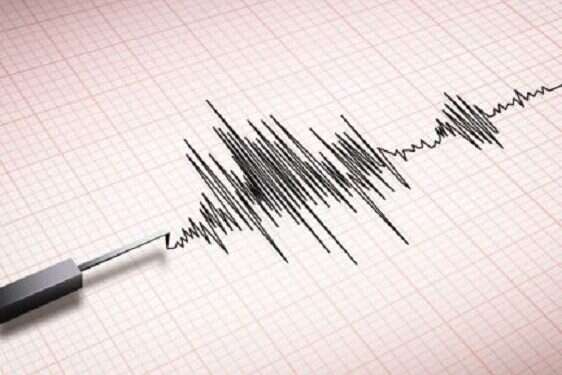Disagreements between the Defense and Finance ministries are preventing Israel's much-needed earthquake readiness reform from being implemented, Israel Hayom learned Wednesday.
The Geophysical Institute of Israel has recorded over 50 tremors in northern Israel over the past week, ranging from 2.1 to 4.5 in magnitude. While Israelis felt only about a dozen quakes, their rapid succession sparked public alarm as to what may happen in the event of a massive earthquake.
Homefront Command assessments from 2015 say that if a 7.5-magnitude tremor were to hit northern Israel, its effects would be felt nationwide.
The extreme-case scenario will see this quake kill 16,000 Israelis; over 6,000 would be wounded; 10,000 buildings would collapse, 20,000 others would sustain serious damage, and over 100,000 buildings would sustain minor to moderate damage, resulting in the temporary or permanent displacement of 377,000 people.
Defense Ministry officials were furious with their Finance Ministry counterparts Wednesday, saying they were stalling instead of appropriating the funds necessary to implement the Homefront Command's plan to minimize the damage that a major tremor could cause nationwide.
The treasury, for its part, insists that once the government, which is supposed to vote on the IDF's recommendations next week, approves the plan, the ministry would need at least 60 days to review it and debate its implementation.
According to a Hadashot evening news report from Tuesday, Finance Minister Moshe Kahlon met with mayors from northern Israeli cities affected by the earthquakes and promised them that the government would approve a wide-scale plan to reinforce buildings against earthquakes and missile attacks by next week.
Finance Ministry sources, however, claim that the treasury will only appoint a team to review the plan next week, and the team would then have 60 days to review the existing recommendations.
One Defense Ministry official, however, said that the Homefront Command has already presented its plan, in full, to the Finance Ministry and the National Security Council and both "signed off on it completely," therefore "the treasury's assertion that it needs an additional 60 days is nothing but stalling for time."
The Homefront Command's plan was formulated on Defense Minister Avigdor Lieberman's orders following the findings of a 2017 nationwide earthquake drill.
The five-year, multi-billion shekel plan could be funded by using the surplus budget of the Israel Land Authority, which currently stands at 10 billion shekels ($2.74 billion).
Finance Ministry officials told Israel Hayom that funding the plan once it is approved will not be an issue.
A senior treasury official told Israel Hayom that "the wording of the decision that cabinet members will vote on has been agreed upon by all the relevant parties. The implementation team has to come up with the best possible way to effectively implement the plan so as to benefit the residents of northern Israel.
"Moreover, you have to consider that cabinet ministers and other security officials will learn of the details of the plan for the first time next week, and the implementation team may have to incorporate comments that arise during the discussion.
"In any case, everyone naturally wants to execute this plan as soon as possible," the official said.
Also on Wednesday, the Defense Ministry and National Emergency Management Administration held a special conference on earthquake and disaster readiness.
The conference, which included officials from NEMA, the Defense, Interior and Public Security ministries, the Homefront Command, Israel Police, Magen David Adom emergency services and Fire and Rescue Services, as well as mayors nationwide, discussed ways to improve the earthquake resilience of some 80,000 residential buildings and 4,600 public facilities built before 1980.




